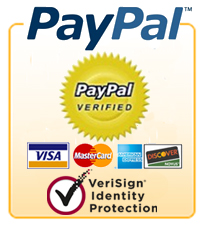
As responsible pet owners, ensuring the health and well-being of our furry companions is of utmost importance. While regular veterinary care, proper nutrition, and exercise are crucial, one aspect that should not be overlooked is vaccination. Just like humans, pets need vaccines to protect them from various diseases and infections. In this article, we will explore the significance of vaccines for your pets and why they are essential for their overall health.
Prevention of Common and Deadly Diseases
Vaccines play a critical role in preventing common and potentially fatal diseases in pets. They stimulate the immune system to recognize and fight off specific pathogens, reducing the risk of infection. For example, vaccines can protect dogs from diseases such as distemper, parvovirus, rabies, and canine hepatitis. Similarly, cats can be immunized against illnesses like feline leukemia, feline distemper, and rabies. By vaccinating your pets, you provide them with a strong defense against these harmful diseases.
Public Health and Zoonotic Diseases
Beyond the health benefits to individual pets, vaccines also contribute to public health. Certain diseases that affect animals can be transmitted to humans, known as zoonotic diseases. Vaccinating your pets helps prevent the transmission of such diseases to you, your family, and the community at large. Rabies, for instance, is a zoonotic disease that poses a significant risk to both animals and humans. Regular vaccination against rabies not only protects your pets but also ensures they do not become carriers of the disease.
Long-Term Cost Savings
While the initial cost of vaccinations may seem like an expense, it is a wise investment in your pet’s long-term health. Preventing diseases through vaccination is far more cost-effective than treating them later. The expenses associated with diagnosing, treating, and managing diseases like parvovirus or feline leukemia can be substantial and may even exceed the cost of vaccination. By vaccinating your pets, you save not only money but also spare them from unnecessary suffering.
Ensuring Boarding and Travel Opportunities
If you plan to board your pets or travel with them, vaccination is often a prerequisite. Boarding facilities and airlines typically require proof of up-to-date vaccinations to ensure the safety and well-being of all animals involved. Vaccinating your pets not only allows you to enjoy worry-free vacations or business trips but also provides assurance that they are protected from potential diseases they may encounter in such environments.
Maintaining Herd Immunity
Vaccinating your pets also contributes to the concept of herd immunity within animal populations. Herd immunity occurs when a significant portion of the population is immune to a particular disease, making it difficult for the disease to spread. By vaccinating your pets, you help protect vulnerable animals, such as young puppies and kittens, as well as those with compromised immune systems. This collective protection strengthens the overall health of the animal community.
Consult Your Veterinarian
While vaccines are crucial for your pets, it is essential to consult your veterinarian to determine the appropriate vaccination schedule for your furry friends. A veterinarian can tailor the vaccines based on your pet’s lifestyle, age, and risk factors. They will guide you on the recommended vaccines, frequency of vaccinations, and any potential side effects, ensuring that your pets receive the best care and protection.
Vaccinating your pets is vital for safeguarding their health, preventing the spread of diseases, and maintaining their overall well-being. By providing essential immunizations, you not only protect your pets but also contribute to public health and the welfare of the entire animal community. Make sure to consult with your veterinarian to create a vaccination plan tailored to your pet’s specific needs. Remember, a healthy and vaccinated pet is a happy


